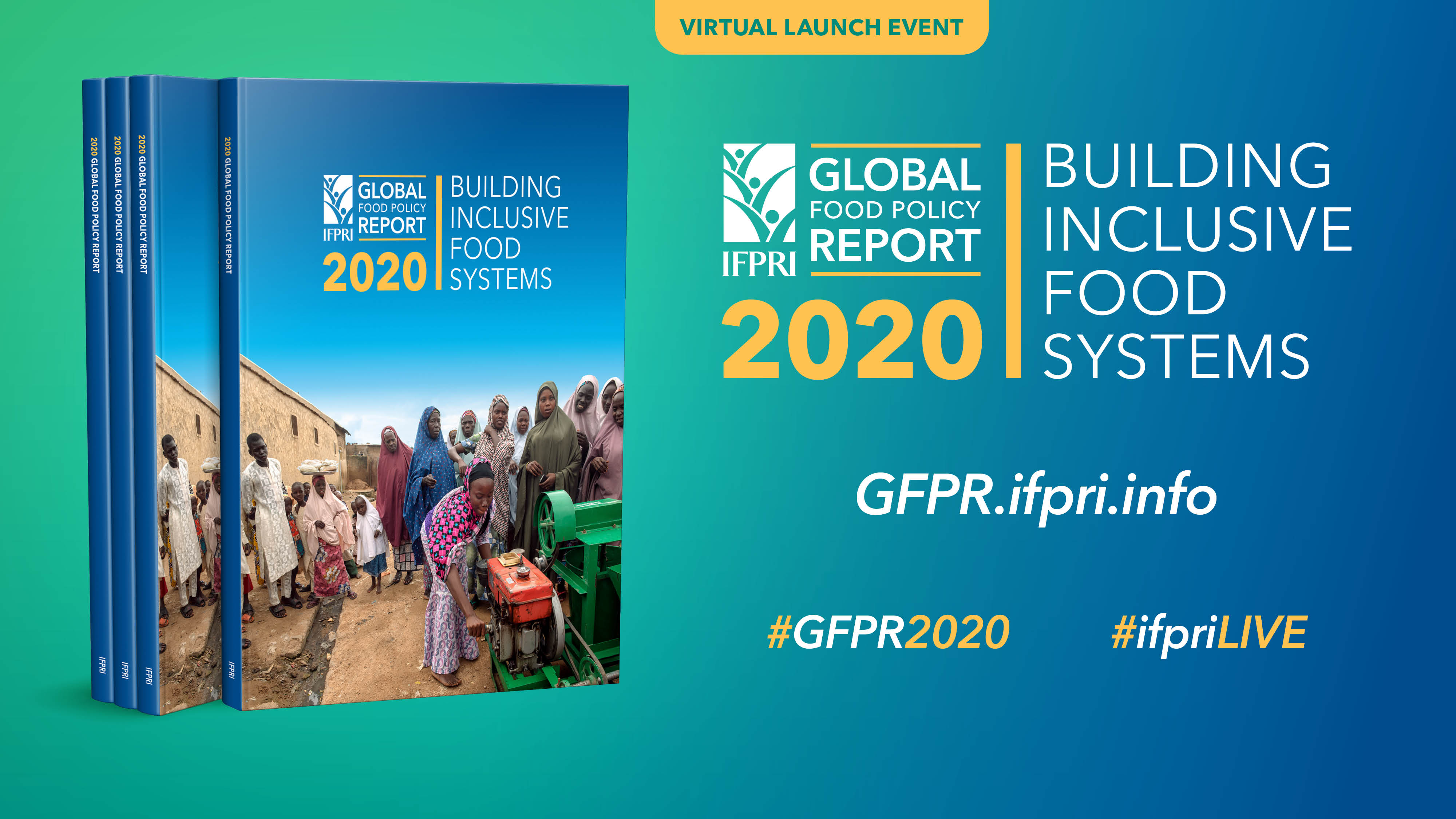The April 7 launch of IFPRI’s flagship 2020 Global Food Policy Report—this year focusing on the theme “building inclusive food systems”—occurred as the COVID-19 pandemic was starting to affect food supply chains around the world. These emerging challenges are formidable, and they shine a spotlight on why building more inclusive food systems is a critical task.
“Even in prosperous times and prosperous societies, too many people are still excluded from fully participating in food systems and securing their benefits…in times of crisis, like today, inclusion is an even greater imperative for protecting the most vulnerable,” IFPRI Director General Johan Swinnen said as he opened the online-only global launch event.
As national governments scramble to respond to the pandemic, they must simultaneously grapple with how to sustainably transform their food systems and ensure healthy diets. John McDermott, director of the CGIAR Research Program on Agriculture for Nutrition and Health (A4NH), shared examples of such approaches for countries in three broad stages of economic development: Traditional, transitioning, and modernizing.
Viet Nam, a transitioning economy, faces food safety issues, McDermott said, and its government is working with local councils to make safety-related improvements in informal food markets, rather than banning them. In Ethiopia, in the “traditional” stage, poorer districts continue to lag in food system development despite investments in agricultural growth corridors. The government has responded by supporting productive safety net programs that provide cash transfers to poor households, McDermott said. Going forward, decision makers need to anticipate and plan for rapid change and take action to build inclusion.
Gender is also a key issue in evolving food systems. Women face systemic inequities including less schooling, less control over resources, and less decision-making power than men, which prevent them from benefiting equally as food systems transform, IFPRI Program Manager Laura Zseleczky explained.
“Quality of inclusion matters,” she said, outlining several steps required to empower women, including: Collecting data to better understand the capacities and characteristics of women entering agribusiness; encouraging private sector initiatives for small and medium-sized enterprises (SMEs) and regulations to ensure these investments do not heighten existing gender gaps. Additional steps are necessary to sustain these efforts and prevent backlash against womens’ gains, she said: Including men in the process, and ensuring that women have the opportunities to expand into new markets, and do not simply end up with increased workloads.
Off-farm agri-food businesses are the key to improving livelihoods of the poor in Africa and Asia, said Rob Vos, director of IFPRI’s Markets, Trade and Institutions Division. This “hidden middle” of the food supply chain provides higher incomes than do farms. By supporting these businesses, policy makers can create better environments for smallholder farmers, who comprise 85% of all farmers, are often poor, and account for less than 40% of the food supply.
However, it’s difficult for these small businesses to compete with big food companies, Vos said. He asked the audience to look beyond the pandemic to understand what can be done to ensure that these SMEs reap the benefits of greater food diversity and growing markets.
Policy makers can work on improving infrastructure and access to finance, developing publicly certified and guaranteed food standards, creating price incentives that help SMEs meet consumer demand for higher quality and food safety, and promoting professional training in entrepreneurship and information technologies. Additional measures include better land tenure policies to provide secure ownership, regulations that promote inclusion in business models, and social protection programs to help smallholders better manage risks of market volatility and weather shocks, Vos concluded.
The current global economic recession will most heavily impact the food security of the poor, Swinnen said, as they spend a greater proportion of their limited income on food than do other groups. Given the worldwide disruption of private value chains, it’s critical to understand the impacts on public food and nutrition programs aimed at the poor, he said, as social protection services must continue uninterrupted.
The decisions national governments make are critical, Swinnen added, as disruptions vary by a country’s stage of economic development and its available food commodities. Building inclusive systems in this difficult environment, he said, depends on a number of efforts: Investment in rural infrastructure services, empowering marginalized people, protecting their rights, and guaranteeing their access to resources—as well as investing in human capital to build resilience for the future.
To learn more about the 2020 Global Food Policy Report, visit www.gfpr.ifpri.info.
Katarlah Taylor is an IFPRI Senior Events Specialist.







